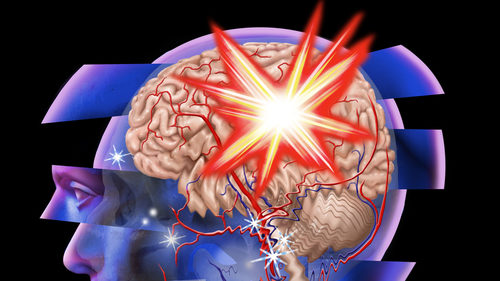The Centers for Disease Control and Prevention (CDC) defines a traumatic brain injury (TBI) as “a disruption in the normal function of the brain that can be caused by a bump, blow, or jolt to the head, or penetrating head injury.” The brain is a highly complex organ that not only controls all functions of one’s body, but also interprets all external stimuli. Due to its complexity, when the brain suffers an injury, the effects are often unknown (as they will be distinct to the individual) and can be severe and long lasting. There are a variety of treatment methods used when treating a traumatic brain injury. In order to properly treat a TBI the severity of one’s injury must be determined.
When assessing the severity of a traumatic brain injury, medical health professionals often rely on the Glasgow Coma Scale. This is a 15-point test that checks an individual’s ability to follow directions, including moving one’s eyes and limbs. The individual’s abilities are scored from three to fifteen, where lower scores are indicative of more severe injuries. The evaluating medical professionals also rely on the coherence of the individual’s speech when delineating the severity of his or her injury.
Treatment Options
The treatment plan for an individual with a TBI is directly informed by the severity of his or her injuries. Treatment plans could be comprised of a combination of any of the following components, as provided by the Mayo Clinic:
- Emergency Care: when a moderate to severe traumatic brain injury has been sustained emergency care services will focus on stabilizing the individual’s oxygen and blood supply levels, maintaining blood pressure and preventing any further injury to the head and/ or neck.
- Medication: medications can be used in efforts to minimize the development of any secondary brain damage, such as:
- Anti-seizure medications
- Diuretics
- Coma-inducing medications
- Surgery: surgery may be needed so as to limit additional damage to the brain tissue and address the following problems:
- Repairing skull fractures
- Removing clotted blood
- Relieving pressure inside the skull by opening a window in the skull
- Bleeding in the brain
Most individuals that have suffered a traumatic brain injury will require rehabilitation. Rehabilitation specialists could include but are not limited to: occupational therapists, physiatrists, speech and language pathologists, physical therapists, neuropsychologists, recreational therapists, and more. The purpose of rehabilitative therapies is to help the individual relearn basic fine and gross motor skills (e.g. walking, talking, writing, etc.) and improve their ability to independently perform daily activities.
For Information and Support
If you are concerned for yourself or a loved one in regards to substance abuse and/ or addiction we recommend reaching out for help as soon as possible. If left untreated, substance abuse can result in long lasting and potentially life-threatening consequences. Keep in mind: you are not alone! There is an entire network of professionals that are available to help and support you and your loved one throughout the recovery process. The earlier you seek support, the sooner your loved one can return to a happy, healthy, and fulfilling life.
Please do not hesitate to reach out with any questions regarding our specific program at Haven House Addiction Treatment and/ or general substance abuse and/ or addiction treatment related information. Our highly trained staff is readily available to discuss how we might best be able to help you and your loved one. We can be reached by phone at 424-258-6792. You are also welcome to contact anytime us via email at admissions@hhtxc.com.



